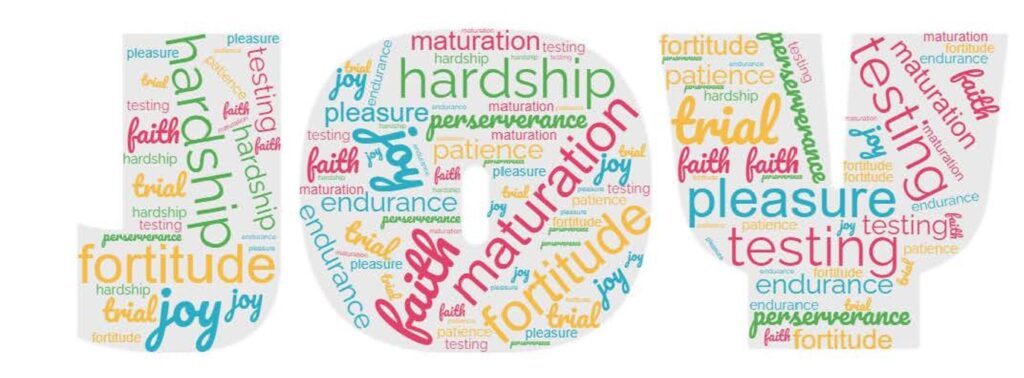
A person very dear to me asked my opinion about Joy. This person had heard a debate about the difference between happiness and joy and wanted to know my take on “What is Joy?”
The first class I took when I enrolled in a Certificate of Graduate Studies in Biblical Studies was “New Testament.” For a group project, I persuaded my group to present on Galatians 5:22-23—the fruit of the Spirit. I chose Joy for this project because I had the same question: What is the difference between joy and happiness? What is Joy?
I learned much as I researched my topic for the presentation. In my humble opinion, I equate the difference between joy and happiness to the difference between loving someone and being in love with someone. (I am referring to eros love.) My mother always said that the two differed. She explained that loving someone means you are willing to work for the relationship. Loving someone means you are willing to support that person and vice versa. Loving someone is a choice. When you love someone, you accept them in their clean and dirty state. You are invested in the relationship long-term. You forgive. You trust. You help. You care. You stand with.
The same applies to Joy. Joy stems from knowing that God is with you. Joy comes from pursuing a relationship with God. Joy means you choose to work for that relationship. Joy means that even in bad times (i.e. trials/hardships) you have a peace knowing that God understands and is working with you. Joy is a “cheerful and calm satisfaction in the will of God.”[1] “We have ‘pure joy’ only when we recognize that God is in charge and that He will work even in and through our trials for our good.”[2] Joy is a choice you make to be with God. You are invested in the relationship long-term. You obey. You trust. You praise. You abide with.
On the other hand, being in love and happiness are fleeting or temporary. Both are based on external stimuli. Being in love means you have those butterflies when you see, think about, or are with that someone. It is a feeling that may mature into loving someone. Happiness means you feel good in the moment, for example, when you see a beautiful sunset, hear a baby laugh, or receive good news. It is a feeling that may mature into joy. Both provide pleasant feelings and good memories but can either withstand the hard times?
Here is my comparison of joy and happiness:

Bottom line: Joy is long-lasting because Joy is built on commitment. Joy sustains and motivates me to persevere in the good and bad times. At this stage of my journey with God, Joy means internal peace. And that does not come from external sources.
Reflection: How do you define joy? Where is your joy? What words would you add or subtract from the comparison chart of joy and happiness? What do the Scriptures say about Joy?
[1] Craig S. Kenner, “Galatians 5:13-6:10,” in Galatians: A Commentary (Grand Rapids, MI: Baker Academic, 2019), ProQuest Ebook Central.
[2] Grant R. Osborne, Galatians Verse by Verse (Ashland: Lexham Press, 2017), ProQuest Ebook Central.
My Sister, you’ve done it again. I love this.
Joy means you choose to work for that relationship. I love this sentence.
You nailed it.
Joy in God is intentional, purposeful, focused. We don’t just fall into Joy. And, depending on the Pastor and other Christians to gin up Joy on your behalf is a spiritual and moral disaster waiting to happen.
You’re so right. Joy in God is a long-term investment with eternal benefits.
Thanks Sabrina. I enjoyed reading this since I need constant reminders!
Another great job, Sabrina. I enjoyed it, and I learned something in the process. Thank you for sharing.